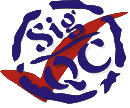Frequency Inspection of Brake System Components
Frequency inspection has long been a tool utilized by manufacturers of brake system components as a means of quality control. This is important to combat perceived defectiveness of a system that experiences issues, such as brake squeal, as well as to identify actual defects in the parts going out to customers. Every component has its own resonance frequencies based on the dynamics of that component. Knowledge of the resonance frequencies of each component provides insight that can prevent manufacturers from sending out defective units, whether they be perceived defects or actual defects.
NVH engineers who understand these phenomena perform theoretical analysis and acquire experimental data in the lab to gain insight into their parts that will eventually be produced on the assembly line. Unfortunately, the frequency requirements, and the consequences thereof, defined by the NVH engineers can still remain somewhat of a mystery to the manufacturing engineers who are tasked with applying them. Oversights in specifications can lead to avoidable scares that lead to delays and downtime. For example, differences in accelerometer placement on a brake rotor from the lab to the assembly line can lead to issues such as variable frequency reporting. This leads to inaccurate data reporting, which leads to poor Gage R&R.
A basic understanding of vibration and how to analyze data would allow the manufacturing engineer to troubleshoot such an issue and prevent unnecessary delays. This paper will attempt to take these concepts beyond the specification sheet and into the science and mathematics behind the dynamics of the different components of the total brake system. The knowledge gleaned from this analysis allows for intelligent decision making for go/no-go on the production line, as well as root cause analysis in the lab.
Get the Paper!
Complete the form on this page to request the paper.

